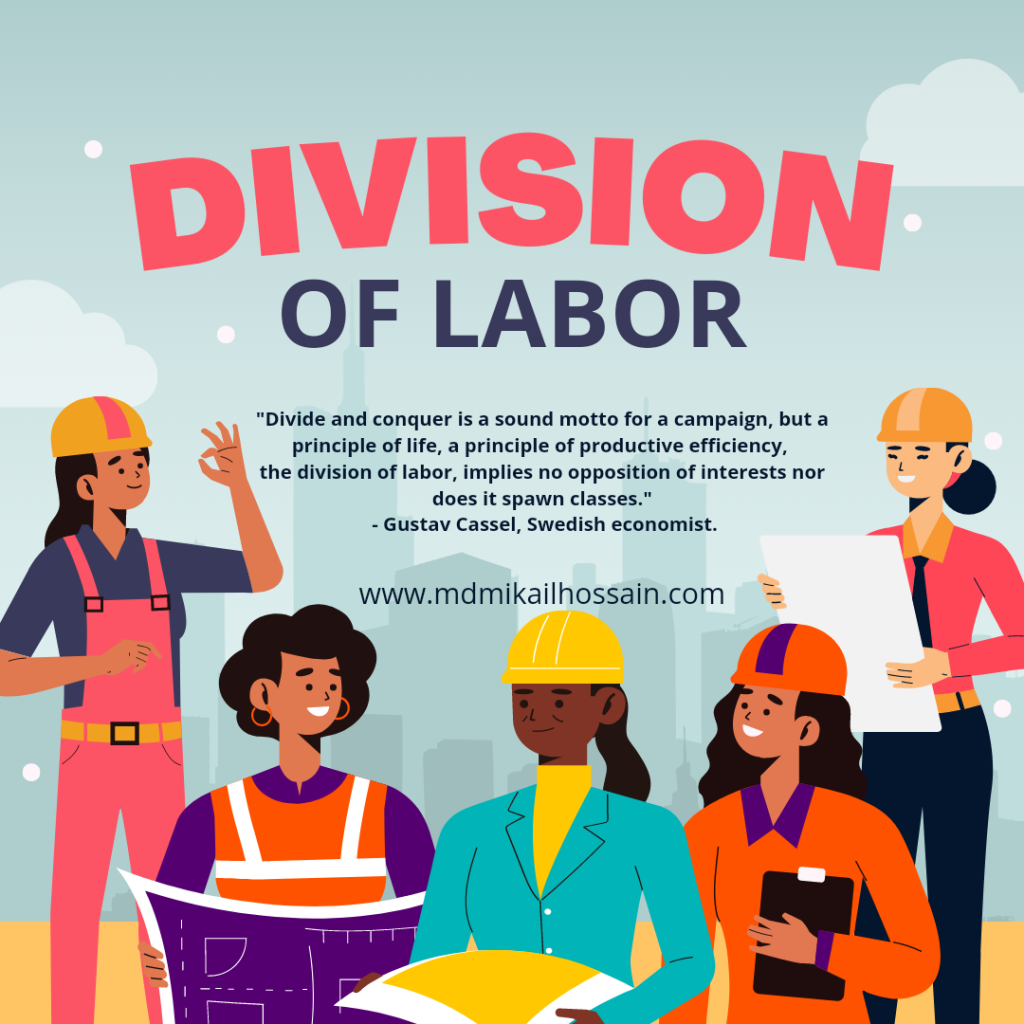Division of labor refers to the separation of tasks or work within a system, organization, or society. In a division of labor, different individuals or groups specialize in particular roles or functions, which are typically interconnected and interdependent.
The division of labor is often associated with industrialization and modern economies, where specialized workers are needed to perform increasingly complex tasks. This approach is believed to increase productivity and efficiency by allowing individuals to focus on their specific area of expertise.
One of the key advantages of the division of labor is the ability to achieve economies of scale, as production can be optimized and streamlined. It also enables individuals and organizations to create more sophisticated products and services through specialization and expertise.
Bangladesh has a diverse and rapidly growing economy, with a significant portion of its workforce engaged in the industrial and manufacturing sectors. The division of labor in Bangladesh has undergone significant changes in recent years, driven by factors such as globalization, technological advancements, and shifting patterns of consumption and production.
In the manufacturing sector, Bangladesh has become a major player in the global textile and garment industry, with millions of workers employed in factories across the country. The division of labor within these factories is often highly specialized, with workers trained in specific tasks such as sewing, cutting, or finishing.
However, the division of labor in other sectors of the economy is less well-developed, with many workers engaged in low-skilled, informal jobs such as agriculture, fishing, and domestic work. This can lead to significant inequalities in terms of wages, working conditions, and access to social protections.
Additionally, gender and social class often play a significant role in shaping the division of labor in Bangladesh, with women and marginalized groups frequently relegated to low-paid and insecure jobs. This has led to efforts to promote greater gender equity and social inclusion in the workforce, through initiatives such as skills training, education programs, and affirmative action policies.
Overall, while Bangladesh has made significant progress in terms of industrialization and economic growth, there is still much work to be done to ensure that the benefits of the division of labor are shared more equitably across the population.
#SpecializationSimplified
#CollaborationAtWork
#EfficiencyInDiversity
#EqualOpportunitiesForAll
#DivisionOfLaborDoneRight #StreamliningSuccess #MaximizingProductivity
#InclusiveWorkforce
#BreakingBarriersThroughSpecialization #WorkSmartNotHard

Good write-up. I certainly appreciate this website. Keep it up!
Thank you so much for your encouraging comment! I’m delighted to know that you appreciate the website and the content. It’s comments like yours that inspire me to keep writing and sharing. Please continue to visit and share your thoughts – your feedback is invaluable. Looking forward to bringing you more articles that you’ll enjoy and find useful. Keep reading, and thanks again for your support!